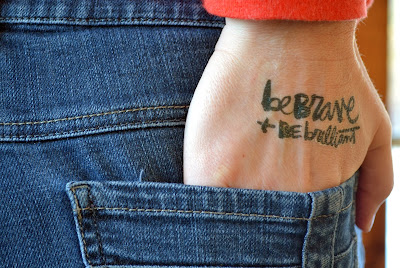On Saturday, I shared Kwanzaa dinner with wonderful people. It was my first encounter with the seven principles of Kwanzaa. All are thought-provoking, but one (self-determination) struck me: define ourselves, name ourselves, create for ourselves, and speak for ourselves . The focus is internal. Speak, live, and create for yourself, not for external approval.
My friend Cyndi recently posed this question: How do you declare your life? How do you show up and announce your presence here, now? While enjoying the Kwanzaa meal, I understood one way in which I don't declare my life--when I focus on the expectations or approval of others. In those moments, no announcement (nor creativity nor realness) occurs.
How do I declare my life? By staying compassionately present with myself and others. By giving my full attention to people. By allowing for joys, sorrows, surprises, and truths. By listening to my own story and the stories of others. Open-hearted presence is how I announce myself. It's not sexy or popular, but it's me. It's how I declare my life.
The simplicity is striking: I announce my presence by staying present. When I'm mindful, I don't leave my body and emotions behind. I allow for my feelings, while listening to another. I stay with that person, whether their story is happy or terribly sad. Depending on the situation, I share tears, hugs, laughter, words, or silence. In doing so, I announce that I am worthy and you are worthy (all of me and all of you--even the dark places).
Some days I actively declare my life; other days I passively (and inattentively) watch life--or I search for the approval of others. But I notice the latter more quickly. And I spend many more days announcing my presence. It's the natural push and pull of life. It's how we learn, grow, and form new habits. On the cusp of a new year, I wish us all a deliberately and genuinely declared life.
(This is a collaborative effort with my friend Cyndi. You can read her wise words here. She is a gift to this world.)

















